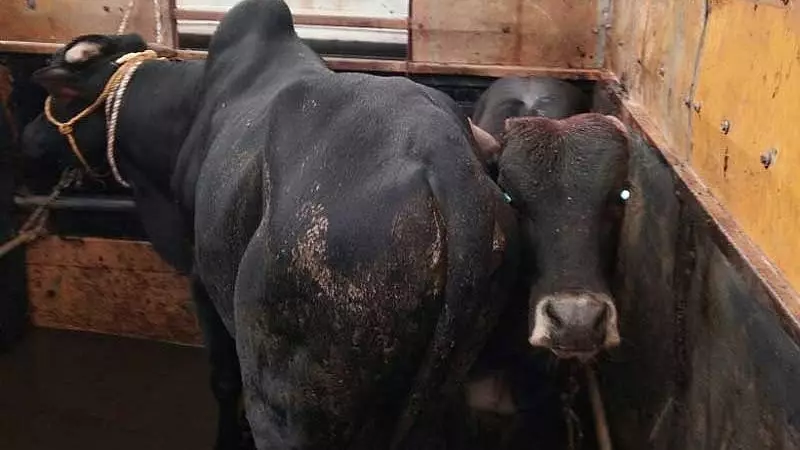
In a significant move against illegal cattle operations, Karnataka authorities have launched a sweeping crackdown, attaching multiple properties allegedly involved in unlawful cow slaughter activities across the state.
The enforcement action represents one of the most substantial operations against illegal slaughter networks in recent times, with properties valued at crores of rupees now under government control.
State-Wide Enforcement Operation
Law enforcement agencies coordinated across multiple districts to identify and seize properties connected to suspected illegal slaughterhouses. The operation targeted establishments that had been operating outside legal boundaries, flouting animal protection laws and regulations governing cattle slaughter.
Authorities confirmed that the attached properties include both residential and commercial real estate, with investigations revealing complex networks behind these illegal operations.
Strengthening Cattle Protection Measures
This crackdown comes as part of the state government's intensified efforts to enforce cattle protection laws. Officials emphasized that the property attachments serve as a strong deterrent against those involved in illegal animal slaughter activities.
The message is clear: those profiting from illegal cattle operations will face severe consequences, including the potential loss of valuable assets.
Legal Framework and Implementation
Karnataka has specific legislation governing cattle slaughter, and authorities are now leveraging property attachment provisions to combat violations more effectively. This approach marks a significant escalation in enforcement strategy, moving beyond temporary shutdowns to permanent asset seizure.
Legal experts note that property attachment represents a powerful tool in dismantling the economic foundations of illegal slaughter networks, potentially crippling their operations permanently.
Broader Implications
The crackdown has sparked discussions about animal welfare, legal compliance, and the economic impact of such enforcement actions. While animal rights groups have welcomed the move, some stakeholders have raised questions about due process and implementation.
Authorities maintain that all actions are being taken within the framework of existing laws, with proper legal oversight ensuring that only properties with clear connections to illegal activities are being targeted.
As investigations continue, officials indicate that more properties could face similar action if evidence establishes their involvement in unlawful cattle slaughter operations.






